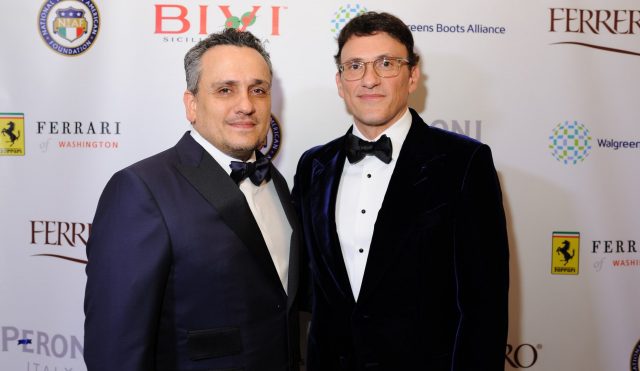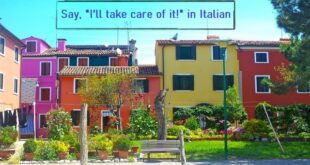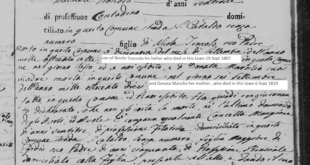
The predominant image of Italian Americans in today’s media comes through representation of our working-class presence. The predominant voice of protest of those images comes from Italian Americans in the middle class. Those educated out of the working class no longer connect to those who have remained working class. One result of this class mobility through education is the creation of Americans with Italian names who do not see anything wrong with writing, producing, directing and acting in films that, while protected by the First Amendment, offend other Italian Americans. For help in understanding this struggle, we need to review a similar experience that occurred in African America.
When white people watched African slaves entertaining themselves on plantations, they imitated them through minstrel shows that quickly became popular throughout the country. When freed slaves wanted to make their way into mainstream U.S. entertainment, they were limited to playing in those same minstrel shows. They outdid the white actors, and in the process brought more humanity to their portrayals. As soon as a Blacks middleclass evolved, Blacks took offense at these portrayals and protested in much the same way the Italian American community has for more than a hundred years. But they didn’t limit their strategies to protest.
Led by such intellectuals as Harvard educated W.E.B. Du Bois, they focused on developing what he referred to as the “Talented Tenth.” Through the establishment of black colleges, studies program, businesses, cultural products and consumers, African Americans educated themselves and by the 1920s created arts to be studied and emulated. By the 1960s they created a social and political awareness that challenged racist histories and legacies, and by the 1970s were able to produce independent filmmakers who made sure the rest of the world saw their lives differently.
While Italian Americans have been busy becoming good Americans, America has spent a great deal of time nurturing what we might call our “Untalented Tenth.” Why has the bottom of Italian American culture gained the spotlight and infamy? I attribute this to the late development of a recognizable Italian-American intelligentsia. Education that doesn’t foster awareness of one’s ancestral culture, education that even denies and makes fun of it, creates a disconnect that fosters the search for self elsewhere and inhibits empathy with other cultures.
Because we have never organized our culture the way others have, we are paying for it now by fighting sophisticated image-makers with out-of-date weapons. For things to change, we must first educate ourselves as to why the Coppolas, Scorseses and Chases have achieved success through the minstrel show mill, and why few, if any, Italian Americans with any kind of real power in politics, the media, the arts, religion, ever came to the aid of those who wanted to protest defamation of Italian Americans. We must understand that profamation is the best weapon in the anti-defamation arsenal.
Once you become aware of the impact Italians have had on American culture from its earliest explorations to its latest scientific advances, you realize that one could stop at just about any point in American history and find an Italian influence. Just as we wouldn’t have had the great tradition of Italian arts without patronage, we won’t have a strong Italian-American culture without modern-day Medici like UNICO’s endowed chairs campaign, the Russo Brothers Italian American Film Forum and the Giambelli Foundation’s support of higher education — who support the efforts of our own “Talented Tenth.”
The only way to deal with the persistence of the stereotypes that distort perceptions of Italian Americans is to study our culture, to trade ignorance for knowledge, and prejudice with faith. Then we can turn all students into teachers who focus attention on the light that illuminates and not the shadows that distort all cultures.
Fred L. Gardaphe is distinguished professor of Italian American studies at the John D. Calandra Italian American Institute, Queens College, City University of New York.
The above appears in the February 2020 issue of the print version of Fra Noi. Our gorgeous, monthly magazine contains a veritable feast of news and views, profiles and features, entertainment and culture. To subscribe, click here.
 Fra Noi Embrace Your Inner Italian
Fra Noi Embrace Your Inner Italian






